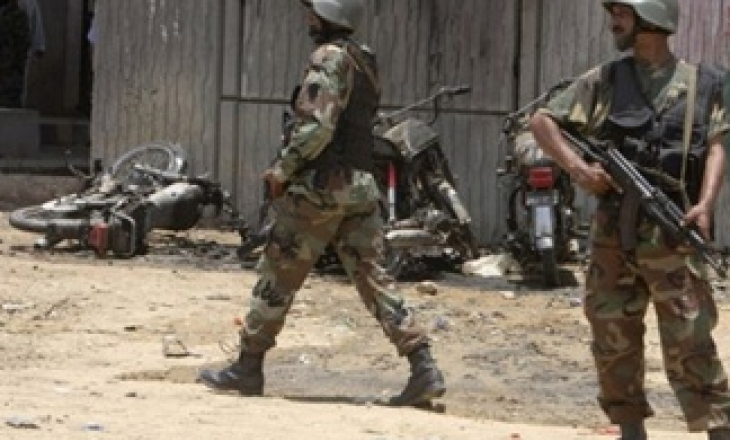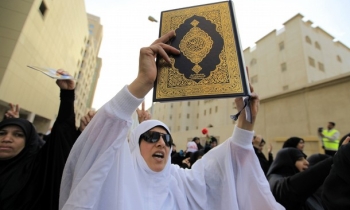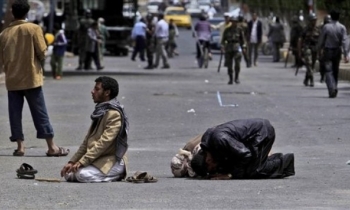A legislative committee in Pakistan has forwarded a bill to the National Assembly that would restrict coverage “of suicide bombers, terrorists, bodies of victims of terrorism, statements and pronouncements of militants and extremist elements and other acts which, may, in any way, promote, aid or abet terrorists or terrorism.”
According to The News International, the report of the committee was presented in the National Assembly by its member Farahnaz Ispahani. Originally the bill was introduced by former Information Minister Sherry Rehman just after the formation of the Gilani government in 2008.
Meanwhile, authorities also have Internet censorship plans after representatives of the Pakistan Telecommunication Authority (PTA) on Tuesday told the Lahore high court that it will comply with a June 22 ruling ordering it to monitor certain websites and block links to “blasphemous” and “sacrilegious” content, according to Reporters sans Frontières (RSF).
The details: [Link]
The committee in its report suggested the amendment in section 20 of the PEMRA Ordinance 2002 and it put a bar for not broadcasting video footage of suicide bombers, terrorists, bodies of victims of terrorism, statements and pronouncements of militants and extremist elements and other acts which, may, in any way, promote, aid or abet terrorists or terrorism.
The section “K” of clause 2 of the bill stated that a person who is issued a broadcast media license shall ensure that there will be no propagating of any opinion or act in any manner prejudicial to the Ideology of Pakistan or sovereignty, integrity or security of Pakistan and not broadcast any programme inciting violence or hatred. The section “I” of clause 2 of the proposed bill stated that no one shall broadcast anything defamatory against the organs of the state and not broadcast any programme or discussion to speculate or influence a matter which is sub judice.
The committee proposed the amendment of section 33 that stated that (1) any broadcast media and distribution service operator or any person who violates or abets the violation of any provisions of this ordinance shall be guilty of an offence punishable with fine which may extend to Rs10 million.
(2) Where such broadcast media or distribution service operator or any person repeats the violation or abetment such person shall be guilty of an offence, punishable with imprisonment of a term which may extend to three years, or with fine, or with both. The bill also suggested for the substitution of section 34 of the ordinance and stated no court shall take cognizance of any offence under sub-section (1) or sub-section (2) of section 33 except on a complaint in writing by the authority or any officer authorised by it.
It also insert the section 34-A in the ordinance that stated that the offences under sub-sections (3) and (4) of section 33 shall be compoundable and cognizable. According to statement of object and reasons of the bill, the prime minister in his first policy statement given on the floor of the National Assembly, after receiving unanimous vote of confidence on Match 29, 2008 expressed the resolve of the new government to dismantle restrictions and curbs placed on the media and announced the repeal of the amendments made in Pemra Ordinance 2002 on November 3, 2007.
The draconian laws that threatened coercive actions against the press will be removed via this bill to begin the process of providing for a free press in Pakistan. This involves, as a first step, the withdrawal of the provisions of Ordinance XIII of 2002 inserted through Ordinance LXV of 2007.
On the Internet front, among the sites to be kept under watch are Yahoo!, MSN, Hotmail, YouTube, Google, Islam Exposed, In the Name of Allah, Amazon and Bing. Thirteen sites have already been blocked including www.skepticsannotatedbible.com, www.middle-east-info.org, www.faithfreedom.org, www.thereligionofpeace.com, www.abrahamic-faith.com, www.muhammadlied.com, www.prophetofdoom.net, www.worldthreats.com,www.voiceofbelievers.com and www.walidshoebat.com.
“The situation of online free expression is deteriorating in Pakistan,” Paris-based RSF said. “The vice has been tightening since access to Facebook was blocked in mid-May. The country seems to want massive Internet surveillance and is moving towards a targeted filtering system that is neither transparent nor respectful of rights and freedoms.”
The court issued its ruling in response to a petition from Pakistan lawyer and activist Muhammad Siddiq for the blocking of all sites with blasphemous content. Siddiq is also responsible for a blasphemy complaint against Facebook’s executives that RSF has already condemned. Representing the federal government, deputy attorney-general Muhammad Hussain Azad supported the request for the blocking of sites.
Article 295-C of the Pakistani criminal codes says: “Whoever by words, either spoken or written or by visible representation, or by any imputation, innuendo, or insinuation, directly or indirectly, defiles the sacred name of the Holy Prophet Mohammed shall be punished with death, or imprisonment for life, and shall also be liable to fine.”
The court has scheduled its next hearing on this matter for 22 September.










